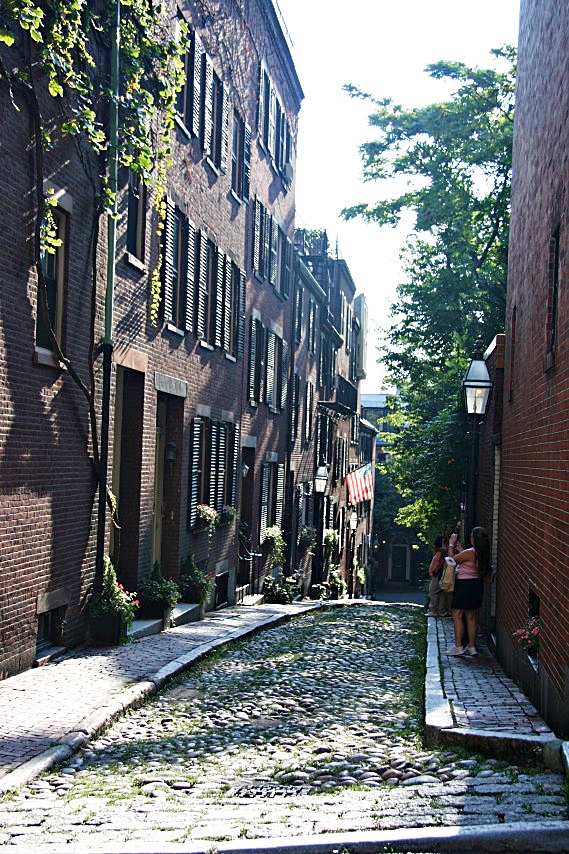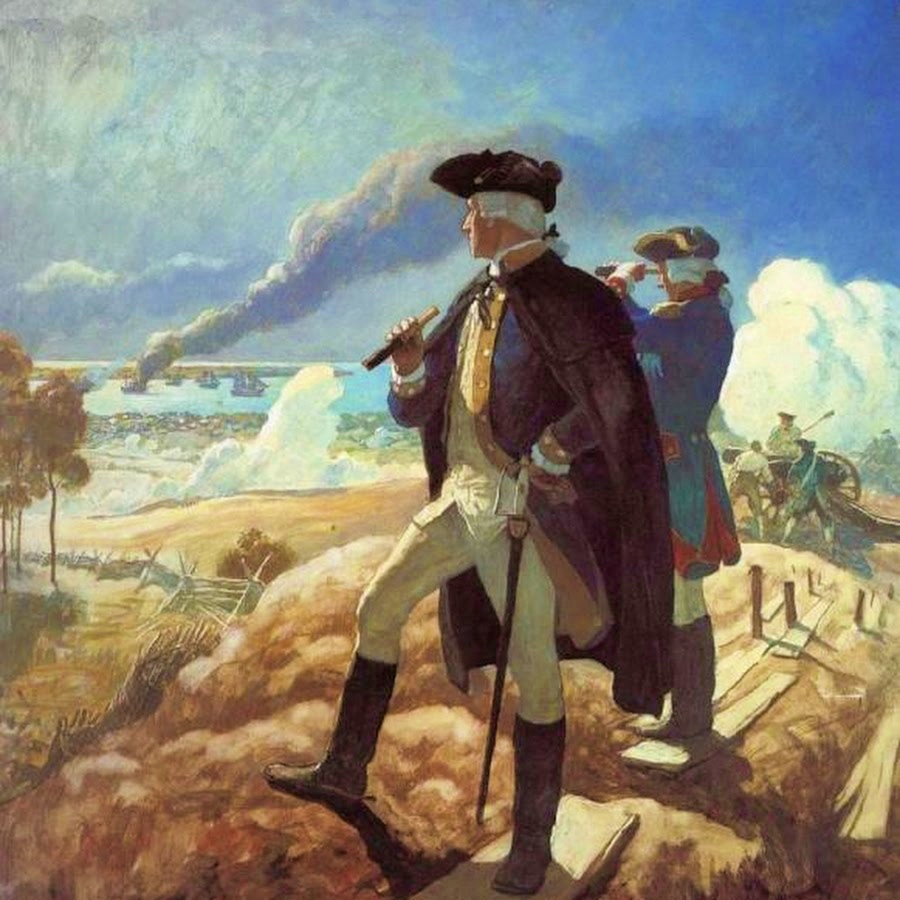Boston History
The Pilgrims settled in Plymouth in 1620, and by 1630 there were settlers in Boston, which had a better harbor; but there were already people here, as there had been for thousands of years.

Historic Acorn Street, on Beacon Hill in Boston MA.
Indigenous Boston
The Massachusett people lived in seasonal encampments along the Charles River for centuries, migrating to the seashore in summer, and to inland locations in winter. They were here when the Pilgrims arrived in 1630 to found a new town.
Founded in 1630
Soon Boston, with its superior port, was the prime English colonial town, and the other great cities of New England were offshoots from this early colony.
In its earliest days (1630s) Boston was called "Trimountain," for the three hills on the Shawmut peninsula around which the settlement was built.
At that time Trimountain was almost an island, connected to the mainland only by the narrow natural causeway called "Boston Neck."
Boston was the first large colonial town in British North America, first in resistance to British measures that brought on the Revolutionary War, and first in learning, science and culture during the 19th and early 20th centuries.
Creating New England
The pattern of arriving by ship in Boston and then pushing on into the hills beyond was to be a permanent feature of New England life. Much of New England was settled in this way.
Thomas Hooker set out from Cambridge MA in 1636 to found Hartford CT, and about the same time Roger Williams fled Boston to found Providence RI.
Consequently, today Boston is a rich mixture of ethnic neighborhoods, almost a little United Nations, from Chinatown to the Italian neighborhood of the North End and Irish South Boston.
Revolutionary Boston
During the Revolutionary War, Boston was the site of a signal strategic victory by General George Washington at Dorchester Heights when, silently in the dead of night, Continental Army troops moved cannons into position on the hill to threaten British-held Boston. The British evacuated the city without the Continentals ever having to fire a shot.

General George Washington at Dorchester Heights
Triangle Trade
During the 1800s, Boston prospered as an important port in the Triangle Trade, moving rum, fish, tobacco and salt to European ports. Some of Boston's 140 candy companies converted Caribbean sugar into sweet treats, the Boston Sugar Company invented granulated sugar, and Boston baked beans, made with molasses, became a symbol of the city.
Later in the 19th century, manufacturing industry throve in and around Boston, making the factory owners immensely rich, and creating a class of Boston Brahmins.
Urban Development
In the 19th century an ambitious urban development plan resulted in the leveling of two of Trimountain's three hills and the moving of the dirt to fill in the Back Bay adjoining Boston Neck.
The marsh and bogs that were filled in to make the Back Bay district soon became a prime residential area with a Manhattan-style grid of streets and a wide, shady central boulevard called Commonwealth Avenue, an essential link in Boston's Emerald Necklace of parks and green spaces.
"Boston is the Hub of the Universe," or at least that's what many people remembered Dr Oliver Wendell Holmes, the great 19th-century poet, writer and physician, as saying.
Actually, his statement about his beloved city was less ambitious: "The Boston State House is the Hub of the Solar System."
20th-Century Boston
In the 20th century, Boston grew as a financial and insurance-industry center, and added high-tech, med-tech, and pharmaceutical research to its wealth roster. Startup computer companies ringed the city, ranged along MA Route 128, which became a byword for the eastern US's answer to California's Silicon Valley.
Always, since the founding of Harvard College in neighboring Cambridge in 1636, Greater Boston has been a center of higher education. Today the district boasts 44 institutions of higher education, including a dozen of America's most highly-regarded universities.
